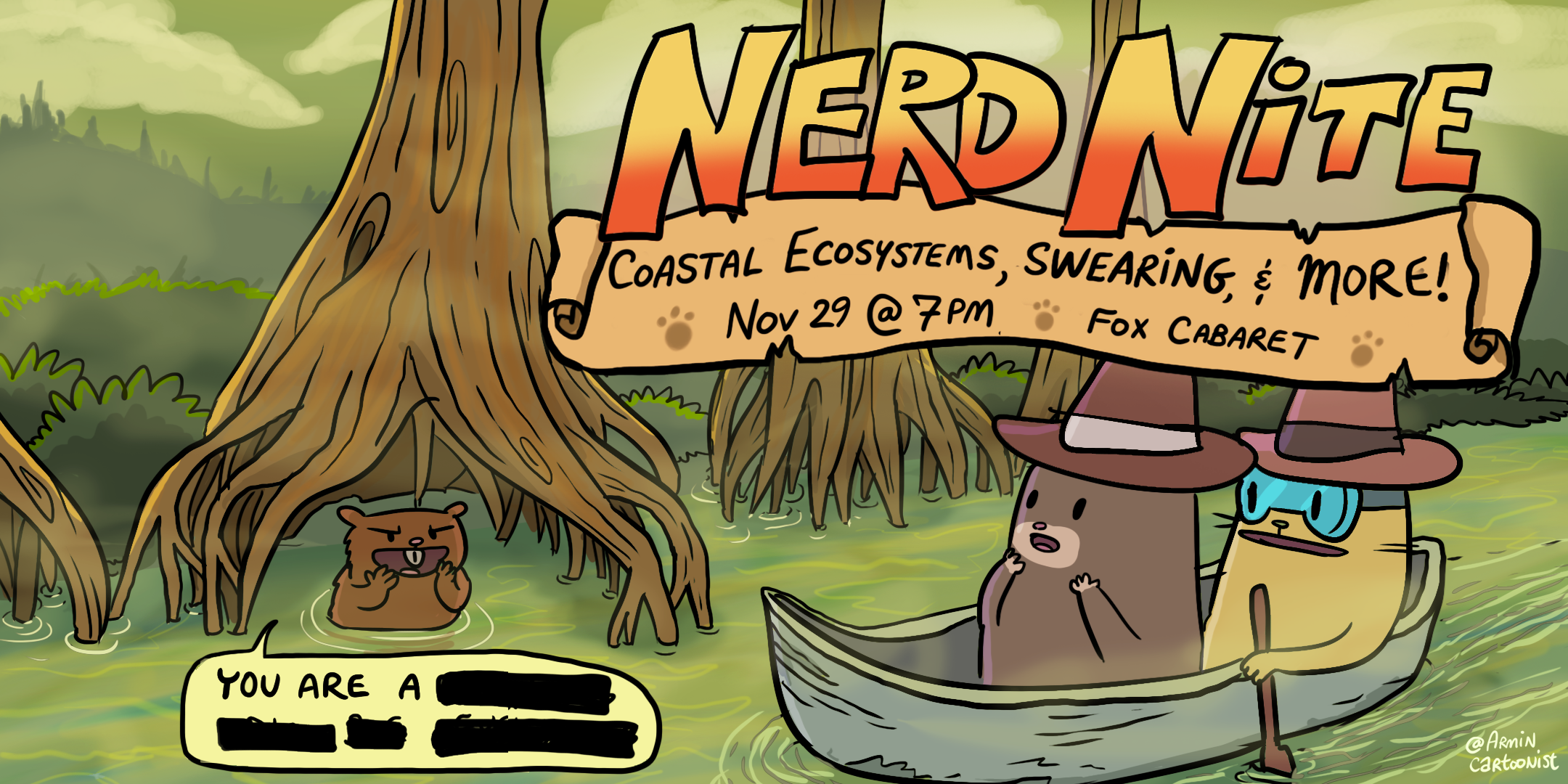We’re baaaaaaack! We are so excited to present Nerd Nite on the stage again! If you’ve been with us before, you know how these go, but for those potential Nerd Nite newbies we’re a social evening with talks, and science revelry hosted by the Rat Detective Dr. Kaylee Byers, and Space Michael Unger.
We’re back with two guests that we featured on our podcast Nerdin’ About that we did 3 seasons of from 2020-2022! Check out their episodes below, abstracts are further down. Seriously we honestly can’t believe we’re back. Can’t wait to get the nerd herd back together!
Hosted by: Kaylee Byers and Michael Unger
Where: The Fox Cabaret
When: Wednesday November 29th; Doors @ 7, show starts @ 7:30
Tickets: Eventbrite
Poster by: Armin Mortazavi

1. Dr. Alex Moore – Coastal Ecosystems
Global change stressors, such as climate change, pollution, and habitat loss, are altering the structure of ecological communities with significant implications for the functions and services that ecosystems provide. Coastal zones are particularly susceptible to such stressors, yet our collective understanding of the cumulative effects of global change on these systems is limited. Which global change stressors are most common across coastal ecosystems? What are the impacts of these stressors? How can these impacts be mitigated? This talk likely won’t answer any of these questions, but will instead provide an overview of their importance and the research I plan to do moving forward.
My name is Dr. Alex Moore (they/them), and I am an Assistant Professor at the University of British Columbia. I completed my PhD at the Yale School of the Environment where my research focused on how predator-prey interactions impact the health and functioning of wetland ecosystems. At UBC, I am expanding upon on this work by branching out into new wetland ecosystems while exploring the cultural implications of habitat restoration and conservation. Through this work, I hope to engage in the co-creation of knowledge and sustainable solutions with local communities most directly impacted by conservation practice and policies.
2. Dr. Anne-Michelle Tessier – F*ckpuffins and sh*tgibbons: the secret life of new swearwords
By the time you’re an adult, you’ve had decades of experience with your particular language(s)’ words and sound patterns, and you can use that amazingly fine-tuned linguistic experience to perform advanced tasks like inventing new obscene insults for your least favorite people on the internet. As it turns out, English-speaking people have fairly consistent intuitions about which swear words sounds best — but those intuitions rely on our unconscious knowledge of English, and they come from a variety of cognitive sources and biases. What are those sources and biases? Where do they come from? And why is it so satisfying to call someone a sh*tgibbon? … The science of linguistics has answers, and there’s a lot of swearing to be done along the way. (For science.)
Anne-Michelle Tessier is an Associate Professor of Linguistics at UBC. She received her BA from McGill University and her Ph.D. from UMass Amherst; she has also been appointed at the University of Alberta, the University of Michigan and Simon Fraser University. Most of her work focuses on how children learn to sound like native speakers of their language(s) — e.g. why they sometimes say ‘lellow pitchiks’ instead of ‘yellow pictures’ — but sh*tgibbons are one of her favorite professional hobbies.